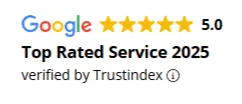Facing Juvenile Crime Charges in Massachusetts? Our Defense Attorneys Are Here to Help
If your child has been arrested or charged with a crime in Massachusetts, the stakes are high—not just for their immediate freedom, but for their future education, employment, and reputation. At the Law Office of Matthew W. Peterson, we understand the stress parents and families feel when a young person faces the criminal justice system. With offices in Boston and Salem, our juvenile defense attorneys provide strategic, aggressive, and compassionate representation for minors charged in Suffolk, Essex, Middlesex, and Norfolk Counties.
We know that the Massachusetts juvenile justice system is designed to focus on rehabilitation, but prosecutors still pursue serious consequences. That’s why our firm fights tirelessly to protect your child’s rights, challenge the evidence, and work toward outcomes that preserve their future.

What Is Considered a Juvenile Crime in Massachusetts?
In Massachusetts, a juvenile crime is any criminal offense committed by someone between the ages of 12 and 18. These cases are usually handled in Juvenile Court under M.G.L. c. 119, which emphasizes rehabilitation over punishment. However, for serious charges, the state may move to try the juvenile as an adult—exposing them to the same penalties adults face.
Juvenile offenses can range from minor school-related incidents to serious felonies. A conviction can affect college admissions, financial aid eligibility, and future job opportunities. That’s why early and skilled legal representation is essential.
Juvenile Crime Charges We Defend in Massachusetts
At the Law Office of Matthew W. Peterson, we represent minors facing a wide variety of juvenile charges. Common cases include:
- Larceny & Theft – Shoplifting, stolen property, or taking money or belongings without consent.
- Assault & Battery – Fights, school altercations, or threats that escalate to criminal charges.
- Drug Offenses – Possession, distribution, or trafficking of controlled substances.
- Vandalism & Property Crimes – Graffiti, property damage, trespassing, or breaking and entering.
- Firearm & Weapons Charges – Illegal possession of firearms or dangerous weapons.
- Alcohol Offenses – Underage possession or consumption of alcohol.
- School-Related Incidents – Bullying, harassment, or fights on school grounds.
- Serious Felonies – In extreme cases, juveniles may face charges like robbery, sexual assault, or homicide, sometimes with the risk of being tried as an adult.
Each case requires a tailored strategy. We investigate every detail, question law enforcement procedures, and look for alternatives to incarceration—such as diversion programs or community service.
Consequences of Juvenile Convictions in Massachusetts
While the juvenile justice system is focused on rehabilitation, convictions still carry serious consequences, including:
- Juvenile Detention or Probation – Placement in the Department of Youth Services (DYS) or supervised probation.
- Permanent Juvenile Record – Which can affect jobs, college applications, and financial aid.
- Loss of Driver’s License – For certain drug or alcohol-related offenses.
- Being Tried as an Adult – For serious crimes, exposing minors to adult prison sentences.
- Collateral Consequences – Immigration issues, reputation damage, and family disruption.
Our goal is to minimize or eliminate these consequences whenever possible, helping your child move forward without lasting harm.
How We Defend Juvenile Crime Cases
Every juvenile case is unique, but our defense strategy typically involves:
- Challenging the Evidence – Questioning police reports, witness credibility, and forensic results.
- Protecting Constitutional Rights – Ensuring the child wasn’t unlawfully searched, interrogated without counsel, or coerced.
- Pursuing Diversion Programs – Working to keep the case out of the formal court system through community-based resolutions.
- Negotiating for Alternatives – Such as probation, counseling, or rehabilitation instead of detention.
- Fighting for Dismissals or Reduced Charges – When the evidence is weak or improperly handled.
We know how juvenile courts operate in Massachusetts and use our local experience in Boston, Salem, Cambridge, Lynn, and surrounding areas to your advantage.
Areas We Serve
Our Massachusetts juvenile crime defense attorneys represent minors and families in:
- Suffolk County – Boston, Brighton, Chelsea, Revere
- Essex County – Salem, Lynn, Peabody, Swampscott, Saugus
- Middlesex County – Cambridge, Somerville, Newton
- Norfolk County – Brookline, Dedham, Quincy
With offices in Boston and Salem, we are strategically located to serve families throughout Greater Boston and the North Shore.
Why Choose the Law Office of Matthew W. Peterson?
Parents and families across Massachusetts trust us because we provide:
- Experience on Both Sides – With a former prosecutor on our team, we know how the state builds juvenile cases.
- Local Knowledge – We regularly appear in juvenile courts across Suffolk, Essex, Middlesex, and Norfolk Counties.
- Personalized Defense – Every child’s case is different, and we build strategies tailored to their future.
- Aggressive Advocacy – We don’t just negotiate—we fight to protect your child’s rights and freedom.
Contact Us Today for a Juvenile Defense Strategy Session
A juvenile crime charge doesn’t have to define your child’s future. At the Law Office of Matthew W. Peterson, we are committed to protecting young people from harsh penalties and guiding families through this difficult time. If your child has been charged in Boston, Salem, or the surrounding areas, don’t wait. Contact us today to set up a confidential strategy session and take the first step toward protecting your child’s future.
Frequently Asked Questions
Can a juvenile be tried as an adult in Massachusetts?
Yes. For serious crimes such as murder, armed robbery, or certain violent felonies, the prosecution may request that the juvenile be tried as an adult.
Will a juvenile record show up later in life?
In some cases, juvenile records can be sealed or expunged, but not always. Early legal defense is critical to minimizing long-term impacts.
What should I do if my child is arrested in Massachusetts?
Stay calm, do not let your child answer questions without a lawyer, and contact an experienced juvenile defense attorney immediately.
Can a juvenile avoid jail time for a criminal charge?
Yes. Many cases can be resolved through diversion programs, probation, or counseling instead of detention—especially with a skilled attorney.
How soon should I contact a juvenile defense attorney?
Immediately. Early intervention can help shape the case, preserve evidence, and increase the chance of dismissal or diversion.



